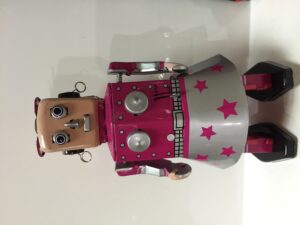This post was originally posted on Linkedin, 18th of October, 2015. Revised.
We live in a world with unequal distribution of wealth. It is nothing new. But maybe, you have not been aware of just how big the inequality has got. In January this year, 2015, Oxfam published an article with the following title: “Richest 1% will own more than all the rest by 2016”. Well, the gap can hardly get bigger than that.
The good news here is that the very rules of the game of life are changing.
My bet, is actually that we are on the very tipping point of the maximum unfairness of wealth distribution. So how will the wealth be distributed among people around the world? How will we cut the inequalities?
Let us take a deeper look into what is already happening.
First, we have an exponential increase in development. This movement is easy to spot, since it is more of an external change. For instance, almost everyone has a mobile phone around the world. There are more mobile phones than the total amount of toothbrushes!
Ever since Ford´s time we have moved from “Any customer can have a car painted any colour he wants so long as it is black”, towards a more customer oriented approach. Build your own xx.
This trend has been supported by the fact that we are moving away from scarcity, when the producer was king, towards abundance. Also by the fact, that the cost of producing and distributing is falling close to zero. This is especially relevant for digital products, but then again — everything that is physical (without a soul :)) will be digital.
As of today, you can already print cars, houses, drugs, body parts in plastic, but as well in biological material or hard steel, or other suitable stuff. Add to this 3G copy machines and you can imagine the explosion of sharing of “physical” goods around the globe (as with music or games today). Check out what your kids play with, and do not be surprised if it is a 3D printer.
We will have access to all kinds of physical goods as vehicle, mugs, furniture, jewelry in similar ways as information is accessible today. Anyone has the possibility and power to write a post, create a book, a video or a piece of music and share it with the rest of us. Now: There is a blog for everything. Soon also: There will be a thing for every wish and whim.
Secondly, we have a parallel movement, an exponential increase in consciousness. This one is a bit more tricky to spot, since it is more of an internal nature. We extend our mind and our hearts. It can be noticed in different ways, like the rise of interest of self development, amount of yoga and meditation practitioners, books on the topic of self realization etc.

We can slowly start to perceive that our surrounding gets more softer, more warm and welcoming. Our compassion for each other evolves. I wrote more about it in this post: The Path to the New Business Model. (This may sound odd if you read your daily newspaper, but keep reading, there is an explanation for everything, so I leave it for another post)
What is happening is that we are evolving from our ego perspective. We are moving beyond it. From I to we. From what´s in it for me to what´s in it for us. We are moving toward altruism.
So again, how will this affect wealth distribution?
As we get an abundance of goods, a paradoxical thing will happen — we will lose the urge to keep and collect stuff. To own things, will not give us any additional satisfaction nor any status since everyone will have access to whatever they need. At the same time, values such as sharing and caring will be well developed. We will simply not benefit from owning things for any reason.
We will be more than content just to have access to the things we need to use, to borrow them just for a little while, for a “limited” time. After we have used them, we will be glad to share them and pass them further or dismantle them and of course, reuse the material for other stuff.
Once Steward Brand stated that Information wants to be free, actually, everything and everyone wants to be free!
As the balance is tipping towards the customer, goods are going from scarcity to abundance, it seems to be natural that the customer set the price.
The customer will be responsible, conscious and aware of the fact that if the seller does not get a sufficient amount of compensation he will not survive, and others will not be able to benefit of his/her services — and that would definitely be against the customer´s altruistic mindset.
I often get the question, but what will happen if somebody just takes the goods and hit the road with it. Well, we will live in a society that will be even more transparent than today, and not forget, more conscious. We will know who took what, for instance, a bike. Just the knowledge of the fact that people will know, will act preventing.
Or a more practical question, how will we, as customers know what is the right price? Today, it is still tricky, especially for advanced things such as a car or a mobile phone. But as the price of producing stuff goes towards zero, the risk of guessing wrong will be less (the risk will be even lower considering that we will be borrowing more frequently instead of buying). Nowadays those that apply the Pay-What-You-Want model, PWYW, overcome this issue by presenting a recommended price.
Imagine a girl, in a village far away from here. The village is cultivating cacao beans as it has done for decades. The girl knows that if the village only had access to a 3d printer they would be able to print out modern tools to improve the work and release time for all of their farmers. It would be a huge gain for the whole village. The girl could also support other villages with tools. The girl gets in contact with a 3d printer seller, let us call them Pear. Pear offers the printer on a PWYW base. Since she is unable to pay for it, mainly because of a bad harvest, she can not pay a reasonable price. But Pear, the seller, does not mind since they trust that the 3D printer will be used for a good cause.
With the 3D printer, the girl contributes to the wealth of the village. The village in turn contributes to the rest of the society by producing more cacao beans. The girl comes back to Pear with fair compensation. (but Pear would have been happy just of the fact that his 3D printer did good :))
Note also, that the girl in the pricing process evaluated the needs of the village, put them against Pear´s efforts and needs, and came to the conclusion that it was worth it for the village to get a 3D printer. These kinds of considerations demand a conscious mind, a mind that can think of consequences beyond one´s own needs.
Thanks to the technical development, we have got new services and new ways of creating, producing, distributing and sharing information. The media industry is a good way to become democratized. We are on an exponential trajectory. Next out for democratization is the manufacturing industry, then the rest of the industry will follow.
Thanks to the development of our consciousness we are solving problems on a higher level and are moving away from the ego perspective toward altruism.
We are getting tools and mindsets to step into a new economic order. An economic order that demands from us conscious thinking and reasoning, based on compassion for humanity, based on compassion for our Planet.
This is the way to balance the distribution of wealth.
This is already happening.
- How does this resonate with you?
- How can you support the shift towards the new economic order?







